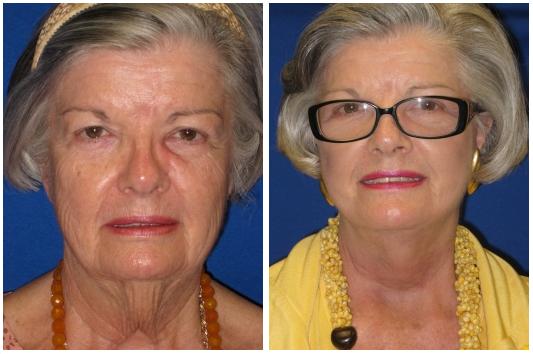Eating more Fruits and Vegetables
It's almost June, which means you have a little more than six months to finally complete that New Year's weight loss resolution. Now a study offers two simple changes that may help you reach your goal: Stop sitting in front of the television and start eating more fruits and vegetables.
While these health tips might seem obvious, it's their long-term sustainability that has scientists praising their virtues. According to the Northwestern University Feinberg School of Medicine study published in the May 28 issue of Archives of Internal Medicine, by making these adjustments you'll be more likely to maintain these habits to lead a healthier lifestyle.
Sedentary lifestyle tied to diabetes, heart disease, premature death: Is TV to blame?
Sitting too much may double your risk of dying, study shows
"Just making two lifestyle changes has a big overall effect and people don't get overwhelmed," Dr. Bonnie Spring, a professor of preventive medicine at Northwestern University Feinberg School of Medicine, said in a press release. "Americans have all these unhealthy behaviors that put them at high risk for heart disease and cancer, but it is hard for them and their doctors to know where to begin to change those unhealthy habits," Spring said. "This approach simplifies it."
In the study, 204 adult patients between the ages of 21 to 60 with elevated saturated fat and low fruit and vegetable intake, high sedentary leisure time and low physical activity were placed in one of four treatment categories. One group had to increase fruit and vegetable intake, another had to decrease fat and sedentary leisure, yet another decrease fat and increase physical activity (otherwise known as traditional dieting) and the last group had to increase fruit/vegetable intake and decrease sedentary leisure. Patients had to record their daily results for three weeks and were coached remotely through mobile technology. If the patients met their goals and displayed healthy lifestyle changes, they would receive $175.
On average, daily fruit and vegetable intake increased from 1.2 servings to 5.5 servings, sedentary leisure time decreased from 219.2 minutes per day to 89.3 minutes, and daily saturated fat decreased from 12.0 percent to 9.5 percent of calories consumed. The group that participated in traditional dieting reported fewer improvements than the other groups.
Then, the participants were given the option of continuing to report their lifestyle. They did not have to keep up with the dietary or exercise recommendations and would receive monthly payments just for turning in their data three times each month for six months.
Ninety-eight percent of the test subjects opted to continue with the second 20-week phase of the study. Out of the 185 people who continued on, 86.5 percent said they tried to "definitely" or "somewhat" maintain what they did in the three-week treatment period even without the financial or mobile encouragement.
What's even more surprising is they seemed to maintain the healthy habits of eating more fruits and vegetables and decreasing sedentary activity without receiving any financial incentive to do so. Though the patients did not increase their healthy behaviors in the six month follow-up, they made "substantial" improvements in watching less television and eating more vegetables compared with their rates when the study started. It is worth noting, however, that those who traditionally dieted for the most part did not carry healthy habits through the second part of the experiment, especially when it came to increasing physical activity.
"We said we hope you'll continue to keep up these healthy changes, but you no longer have to keep them up to be compensated," Spring said. "We thought they'd do it while we were paying them, but the minute we stopped they'd go back to their bad habits," she said. "But they continued to maintain a large improvement in their health behaviors."
The results suggest that even a short period of encouraging healthy lifestyles through coaching and incentives may have a lasting effect. Considering that according to the Centers for Disease Control and Prevention, more than one-third of U.S. adults - 35.7 percent - are obese, and obesity has been linked to heart disease, stroke, type 2 diabetes and certain types of cancer, taking these simple steps could make a big difference.
By: Michelle Castillo
While these health tips might seem obvious, it's their long-term sustainability that has scientists praising their virtues. According to the Northwestern University Feinberg School of Medicine study published in the May 28 issue of Archives of Internal Medicine, by making these adjustments you'll be more likely to maintain these habits to lead a healthier lifestyle.
Sedentary lifestyle tied to diabetes, heart disease, premature death: Is TV to blame?
Sitting too much may double your risk of dying, study shows
"Just making two lifestyle changes has a big overall effect and people don't get overwhelmed," Dr. Bonnie Spring, a professor of preventive medicine at Northwestern University Feinberg School of Medicine, said in a press release. "Americans have all these unhealthy behaviors that put them at high risk for heart disease and cancer, but it is hard for them and their doctors to know where to begin to change those unhealthy habits," Spring said. "This approach simplifies it."
In the study, 204 adult patients between the ages of 21 to 60 with elevated saturated fat and low fruit and vegetable intake, high sedentary leisure time and low physical activity were placed in one of four treatment categories. One group had to increase fruit and vegetable intake, another had to decrease fat and sedentary leisure, yet another decrease fat and increase physical activity (otherwise known as traditional dieting) and the last group had to increase fruit/vegetable intake and decrease sedentary leisure. Patients had to record their daily results for three weeks and were coached remotely through mobile technology. If the patients met their goals and displayed healthy lifestyle changes, they would receive $175.
On average, daily fruit and vegetable intake increased from 1.2 servings to 5.5 servings, sedentary leisure time decreased from 219.2 minutes per day to 89.3 minutes, and daily saturated fat decreased from 12.0 percent to 9.5 percent of calories consumed. The group that participated in traditional dieting reported fewer improvements than the other groups.
Then, the participants were given the option of continuing to report their lifestyle. They did not have to keep up with the dietary or exercise recommendations and would receive monthly payments just for turning in their data three times each month for six months.
Ninety-eight percent of the test subjects opted to continue with the second 20-week phase of the study. Out of the 185 people who continued on, 86.5 percent said they tried to "definitely" or "somewhat" maintain what they did in the three-week treatment period even without the financial or mobile encouragement.
What's even more surprising is they seemed to maintain the healthy habits of eating more fruits and vegetables and decreasing sedentary activity without receiving any financial incentive to do so. Though the patients did not increase their healthy behaviors in the six month follow-up, they made "substantial" improvements in watching less television and eating more vegetables compared with their rates when the study started. It is worth noting, however, that those who traditionally dieted for the most part did not carry healthy habits through the second part of the experiment, especially when it came to increasing physical activity.
"We said we hope you'll continue to keep up these healthy changes, but you no longer have to keep them up to be compensated," Spring said. "We thought they'd do it while we were paying them, but the minute we stopped they'd go back to their bad habits," she said. "But they continued to maintain a large improvement in their health behaviors."
The results suggest that even a short period of encouraging healthy lifestyles through coaching and incentives may have a lasting effect. Considering that according to the Centers for Disease Control and Prevention, more than one-third of U.S. adults - 35.7 percent - are obese, and obesity has been linked to heart disease, stroke, type 2 diabetes and certain types of cancer, taking these simple steps could make a big difference.
By: Michelle Castillo




I've made a good effort to eat more vegetables, but its annoying to have to cook them all the time.
ReplyDeleteI don't eat store bought veggies, no flavor at all. I grow my own, yummmy.
ReplyDeleteWell, time to get active!
ReplyDeleteWhile I do eat vegetable at a regular basis (along with meat) I don't get to move much and usually just sit around all day. I need to get a life...
ReplyDeleteI'm a vegetarian and eat only fruit and veggies!
ReplyDeleteIt's wonderful your presence here on my page.
ReplyDeleteCheck back often, the pleasure is always mine.
A good kiss in your heart that God will cover the good things.
kisses
I! Leilinha
BRASIL
Love fruits and veggies!
ReplyDeleteI am a vegan, so that's about all I eat.
ReplyDelete